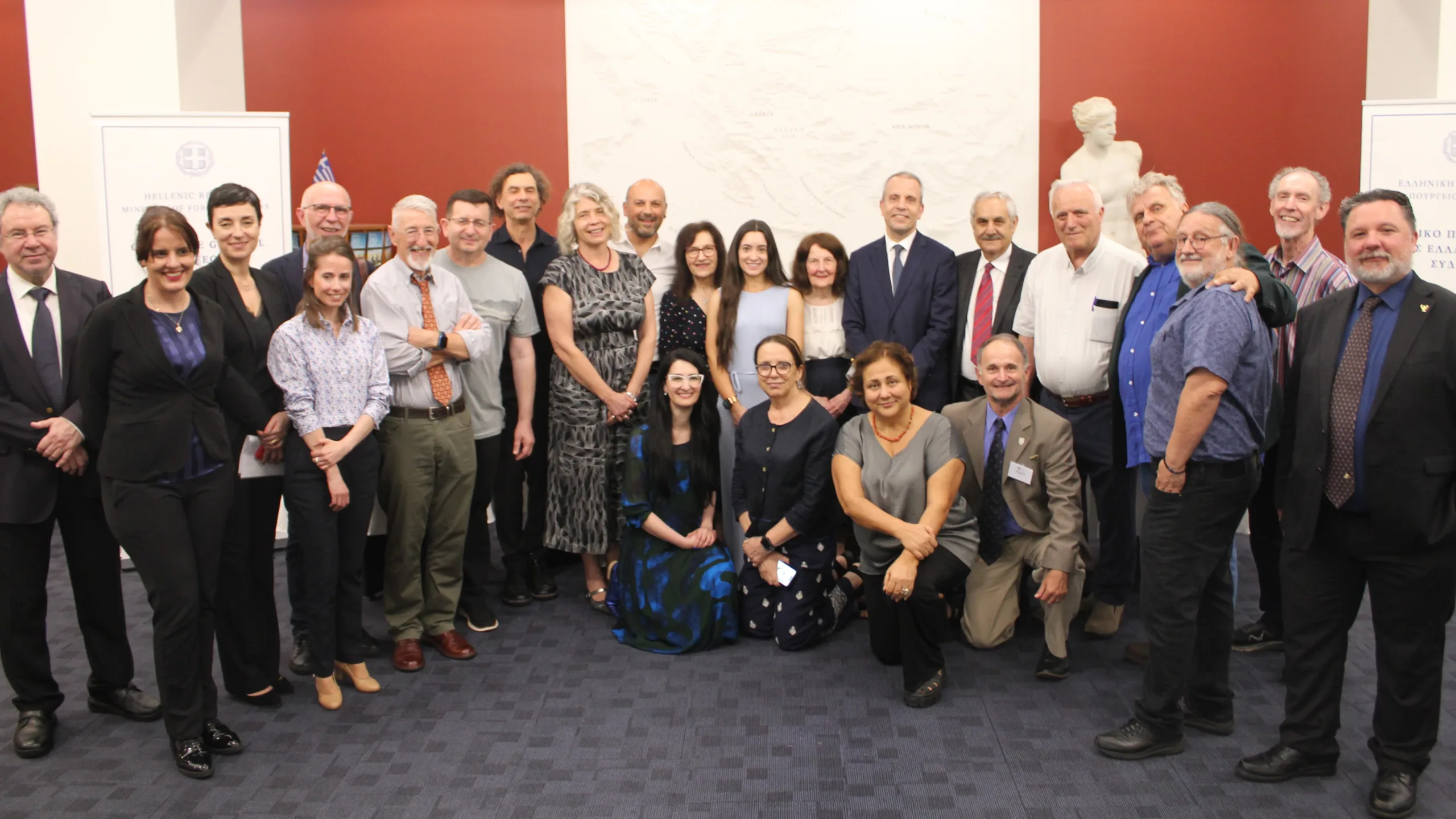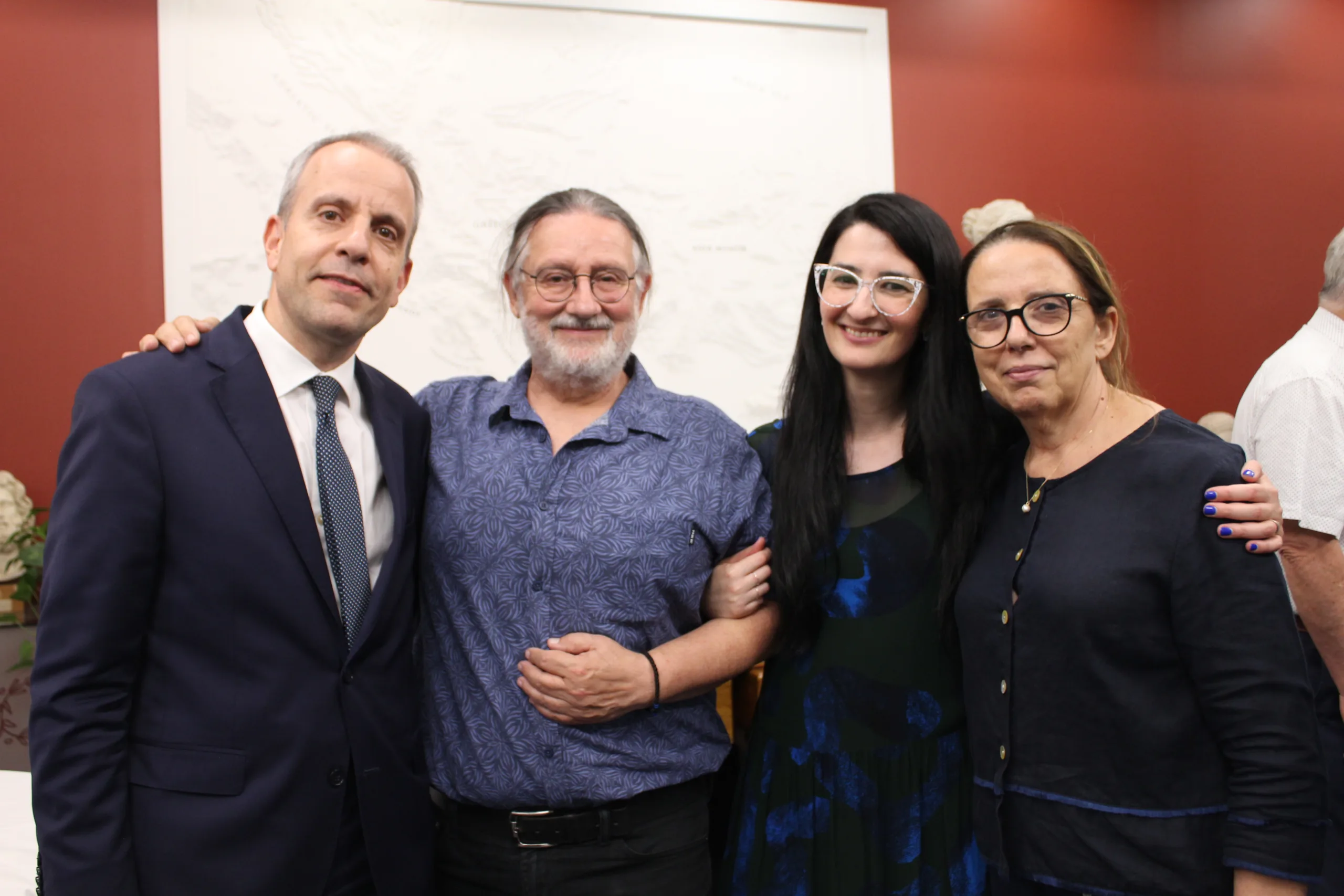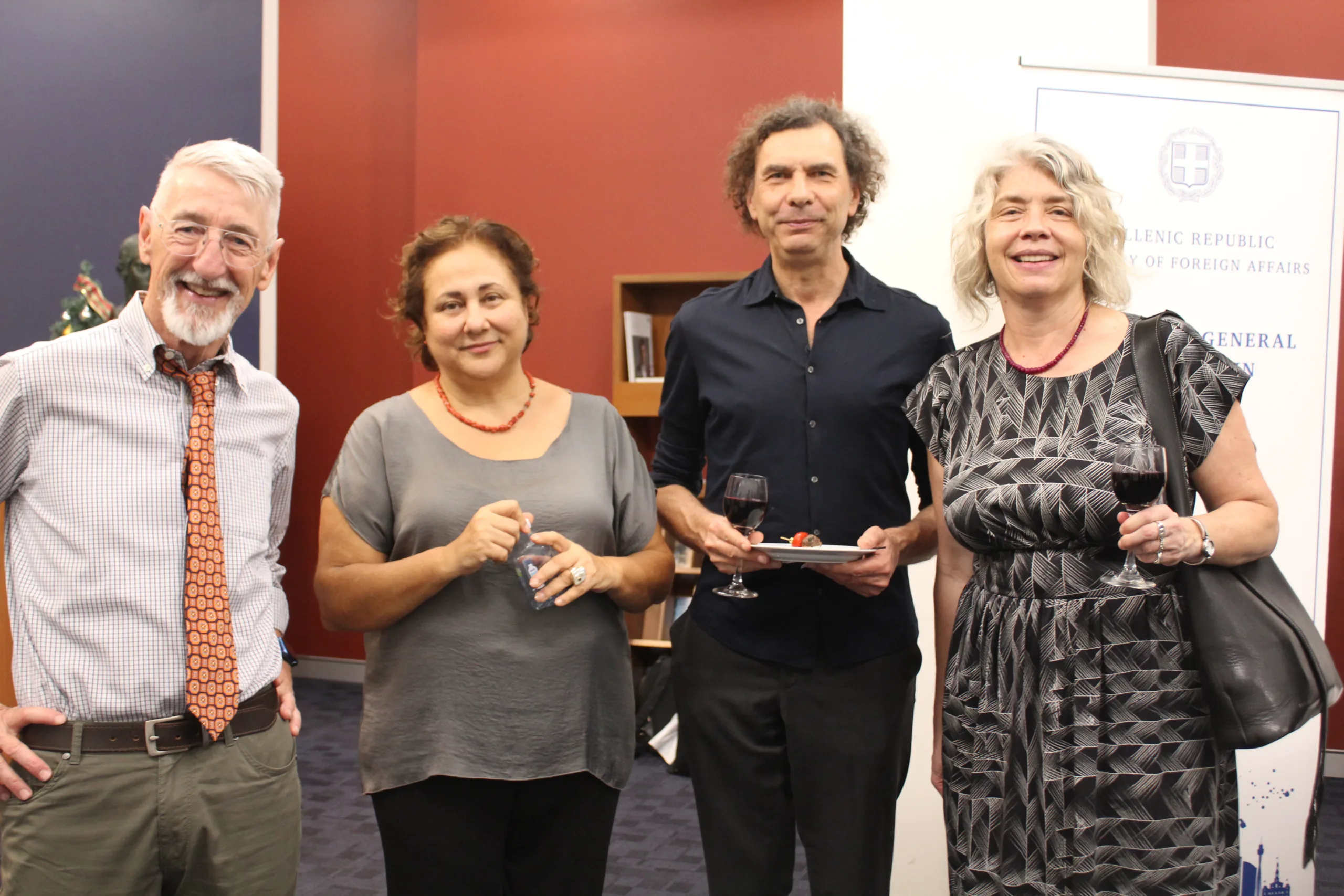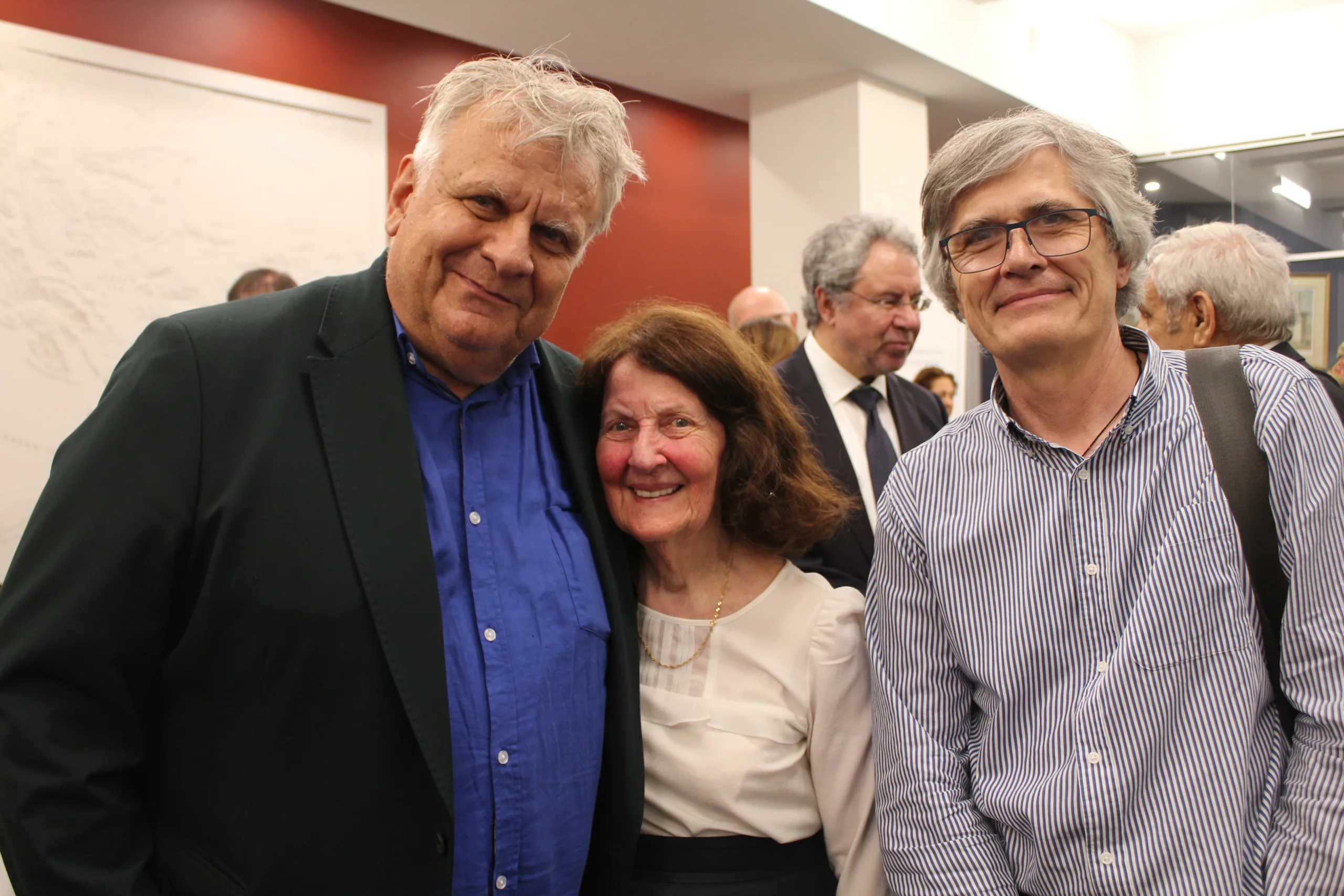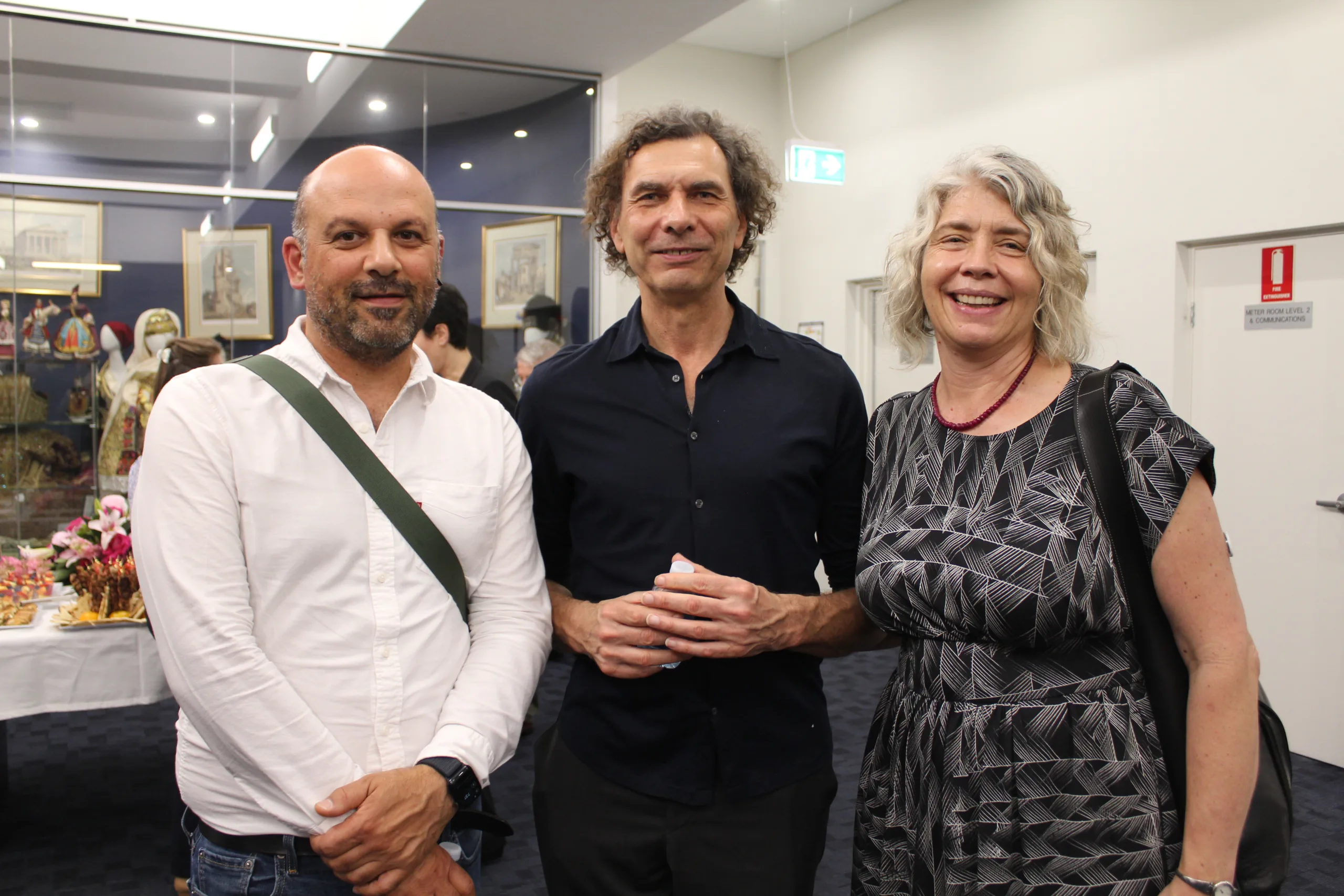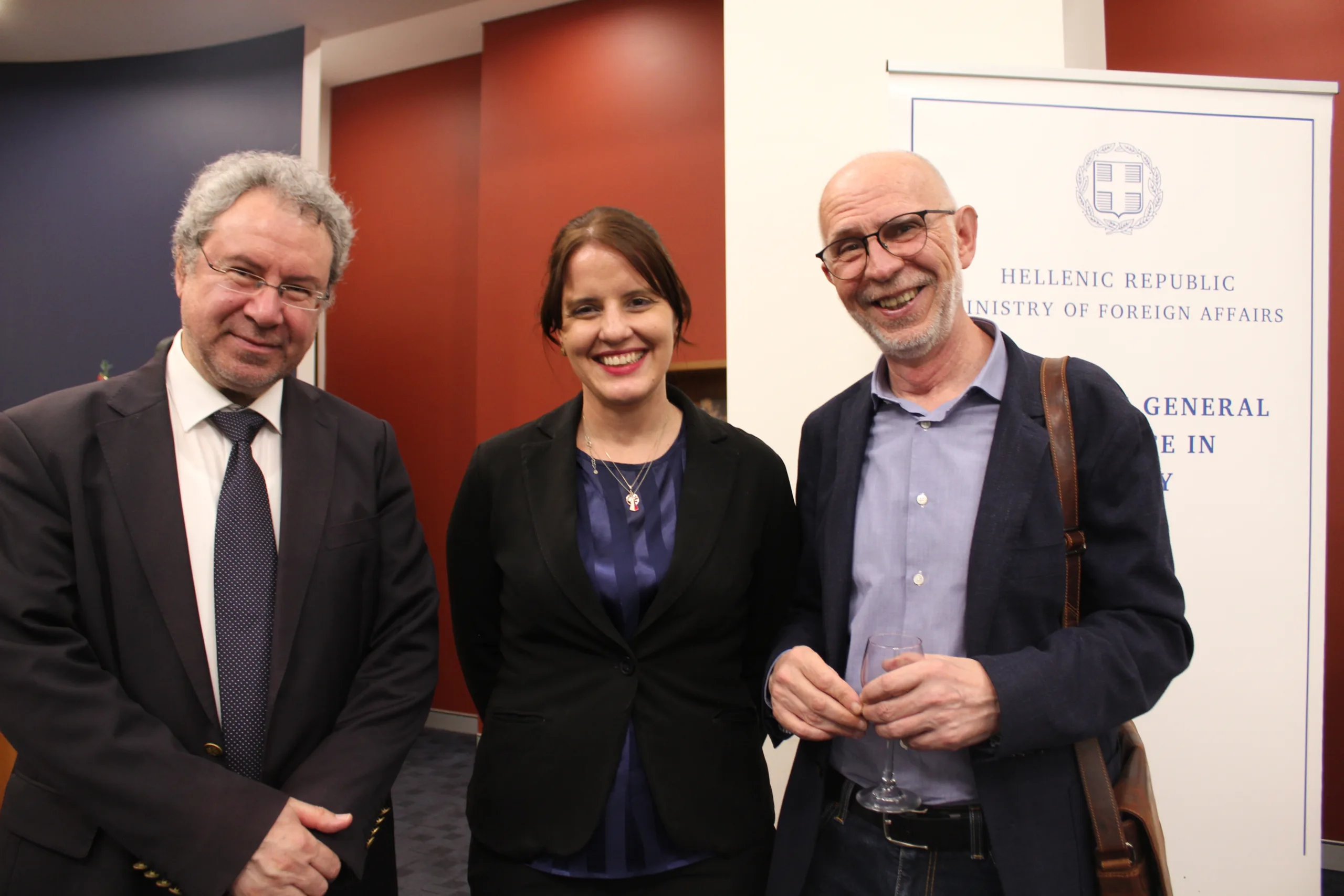The 15th Biennial Modern Greek Studies Conference began with a warm reception at the offices of the Consulate General of Greece in Sydney on Thursday, December 5.
The Modern Greek Studies Association of Australia and New Zealand (MGSAANZ), in collaboration with the University of Sydney’s (USYD) Department of Modern Greek Studies, will host the three-day conference at the university until Saturday, December 7.
Convened by Professor Vrasidas Karalis, Sir Nicholas Laurantus Professor of Modern Greek and Byzantine Studies at USYD, and Associate Professor Anthony Dracopoulos, Chair of the Discipline of Modern Greek and Byzantine Studies at USYD, the conference aims to explore the future of Modern Greek studies in Australia, nearly six years after its last gathering.
The event will bring together academics, researchers, writers, and cultural figures to discuss key topics, including the teaching of the Modern Greek language, current academic research trends, and the publication of Greek literature.
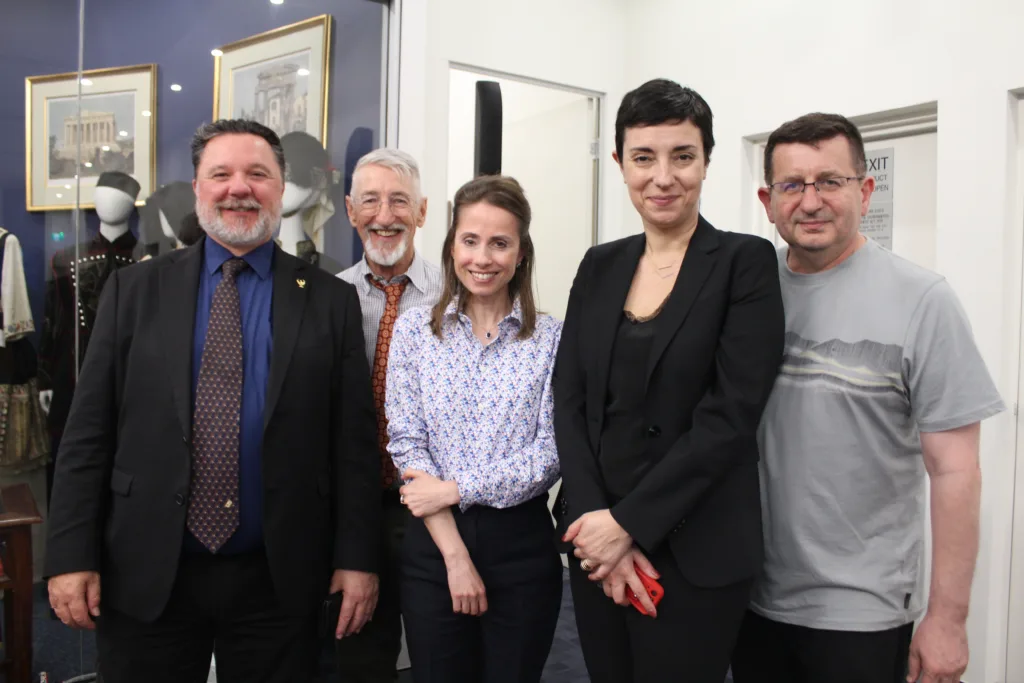
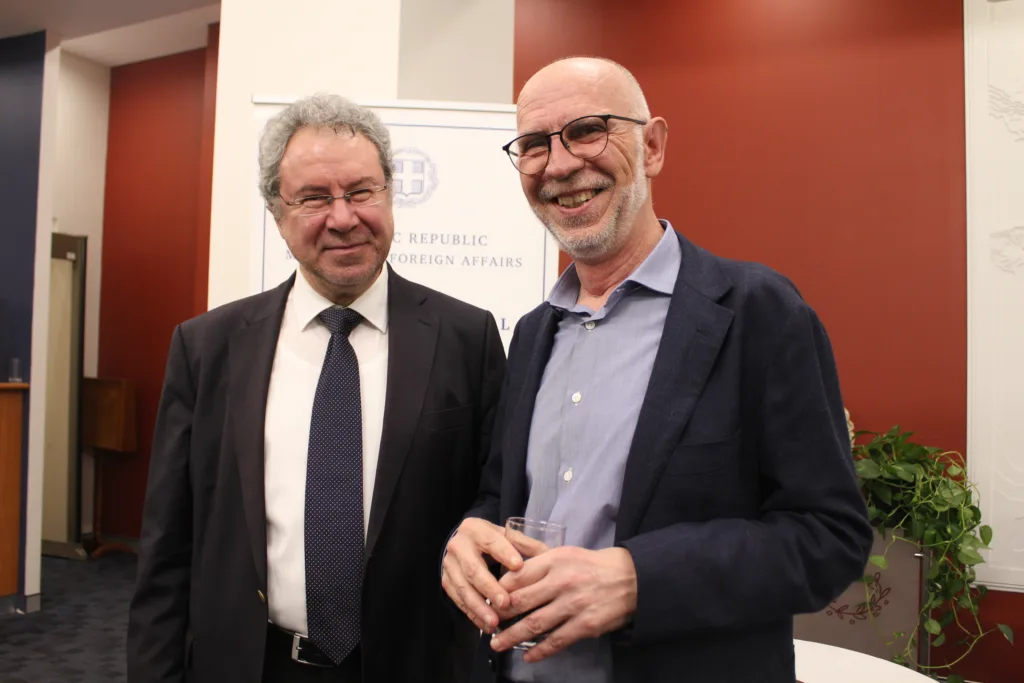
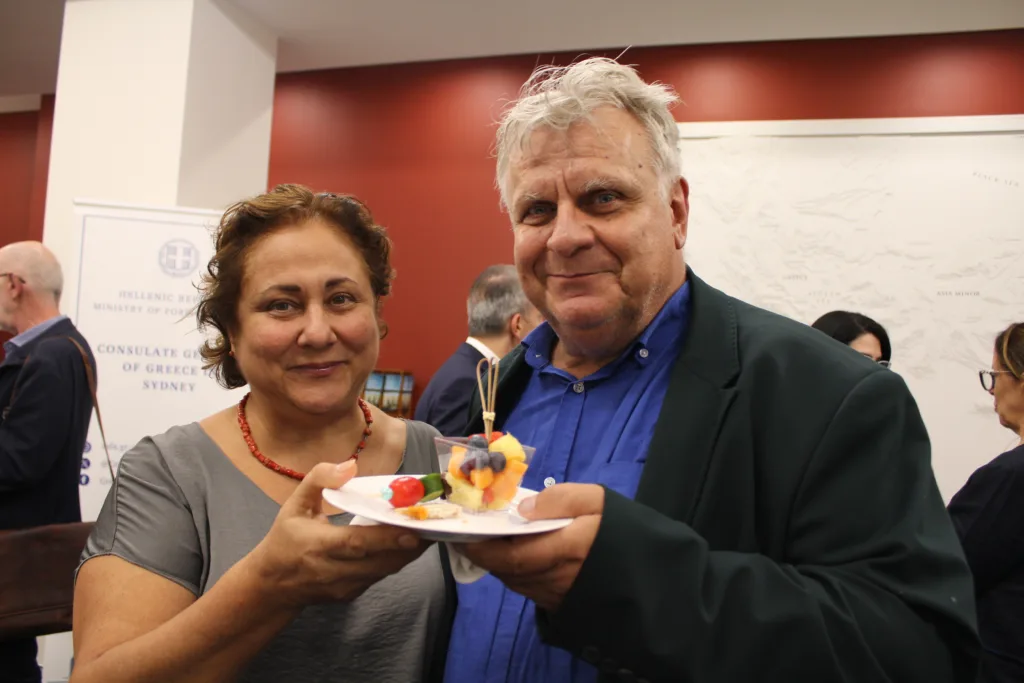
A tone of optimism
The conference’s official launch reception on Thursday evening was emceed by Anastasia Christofilopoulou, First Secretary for Public Diplomacy at the Consulate General of Greece in Sydney.
Ms Christofilopoulou welcomed attendees and reflected on the conference’s theme, “After the Crisis, Where To? Discussing Modern Greek Studies in the Age of Uncertainty.” Highlighting the 50th anniversary of the USYD’s Department of Modern Greek and Byzantine Studies, she remarked, “Life begins at 50,” setting an uplifting tone for the evening.
Consul General’s call for unity
Yannis Mallikourtis, the Consul General of Greece in Sydney, delivered the official welcome, expressing gratitude to the organisers and guests. He underlined the importance of preserving the Greek language and culture within the diaspora, especially as younger generations lose connections to their ancestral homeland.
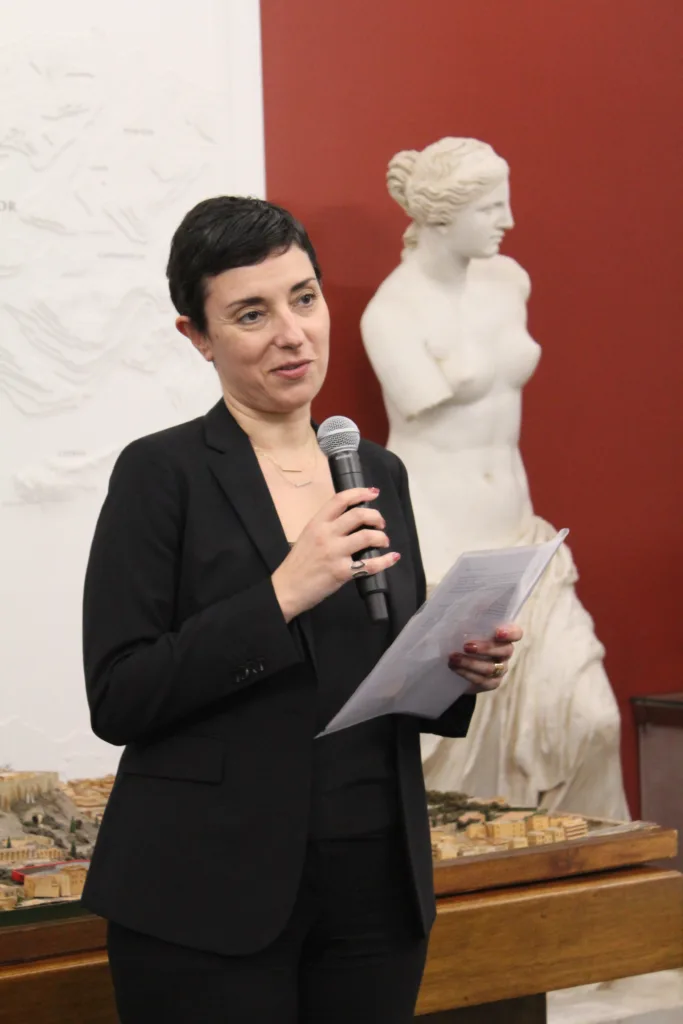
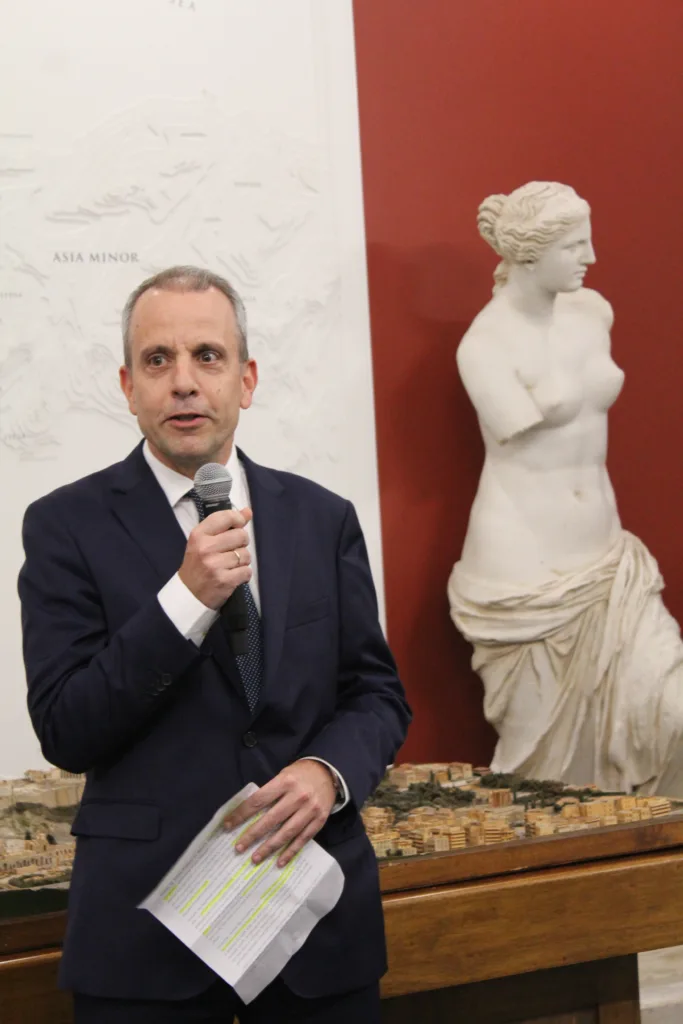
Describing the dual mission of the USYD’s Greek Department, he said: “It supports the preservation of the Greek language… while furthering academic research in areas such as Greek poetry, cinematography, literature, and politics.”
Addressing concerns about the decline in Greek language use, Mr Mallikourtis emphasised, “If we don’t try, we’ve lost the game.” He called for collaboration among stakeholders to reverse this trend and focus efforts on established institutions like the USYD’s Department of Modern Greek and Byzantine Studies.
Reflecting on progress and challenges
Associate Professor Dracopoulos delivered a comprehensive and impassioned address that explored the department’s achievements and the pressing challenges it faces.
He began by thanking benefactors such as Sir Nicholas Laurantus and George Angelopoulos, whose financial contributions have been instrumental in maintaining the department’s operations.
“Without their support, our accomplishments would not have been possible,” the Assoc Prof. said.
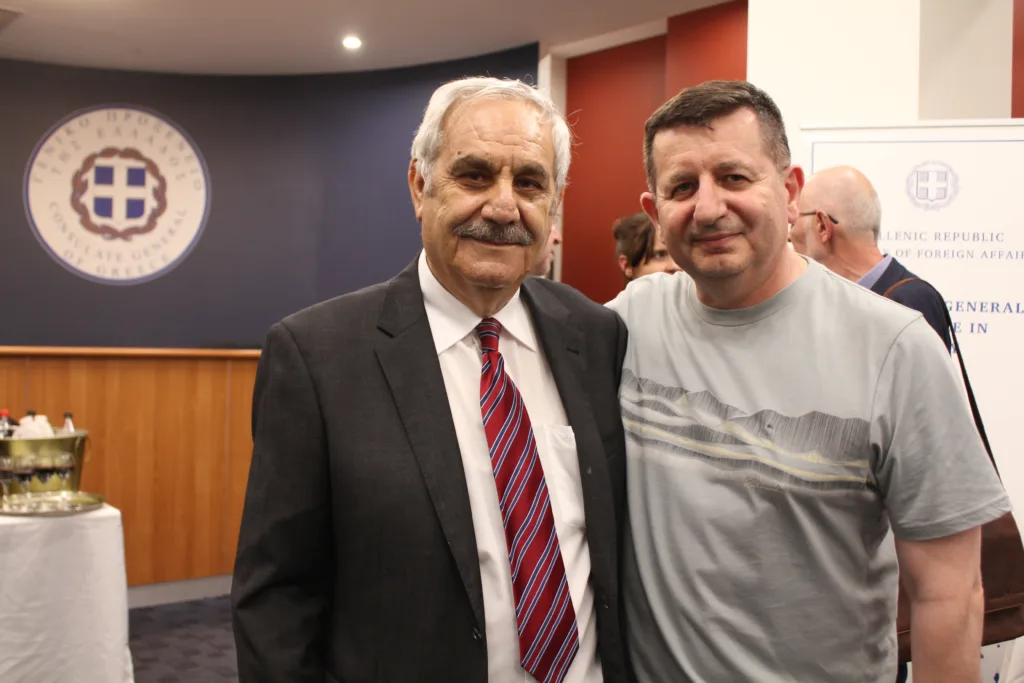
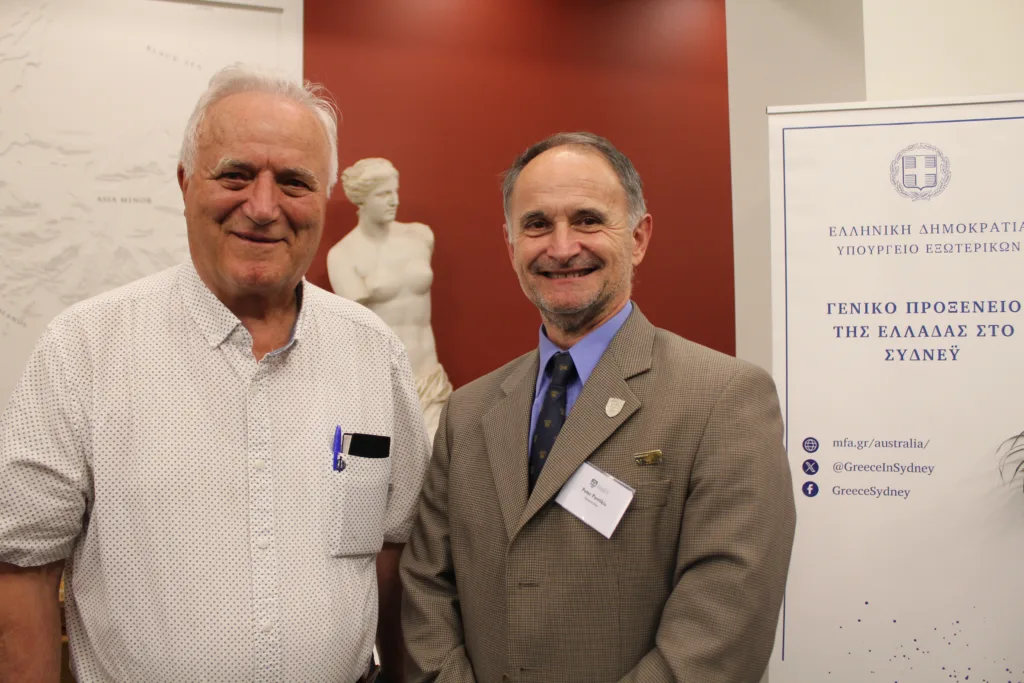
Assoc Prof. Dracopoulos highlighted the challenges of maintaining Modern Greek studies in Australia, pointing out that many programs have closed in recent years. “From 15 programs in 1989, we now have five,” he lamented.
He stressed the urgent need for more financial support to ensure the survival of the remaining programs, urging the community to follow the example of benefactors like Sir Nicholas Laurantus. “If Modern Greek disappears from universities, where will our teachers come from?” he asked.
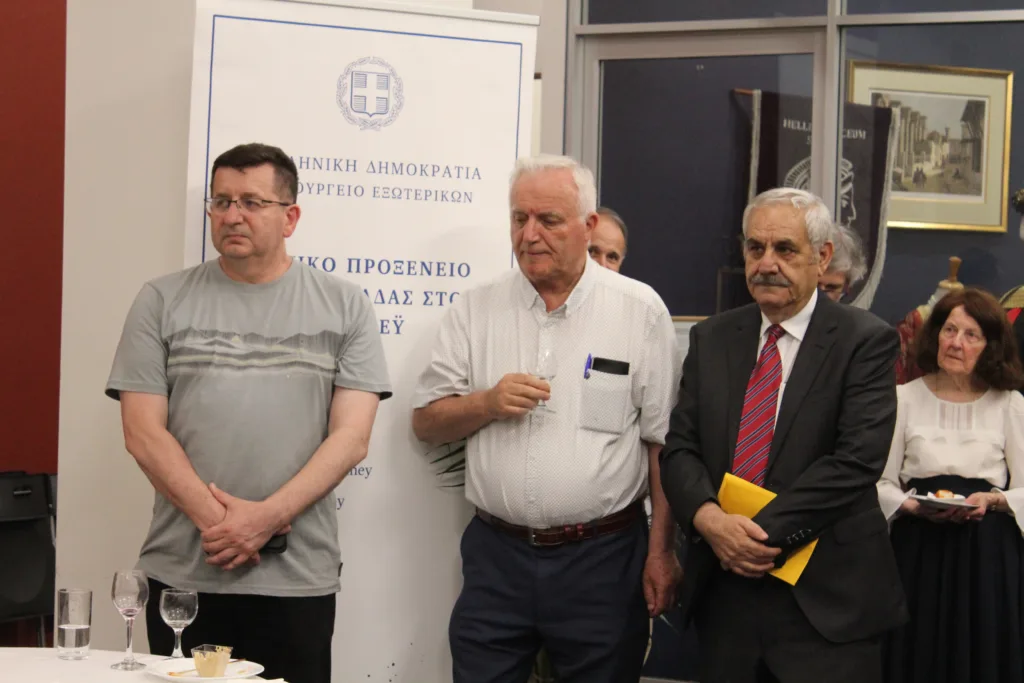
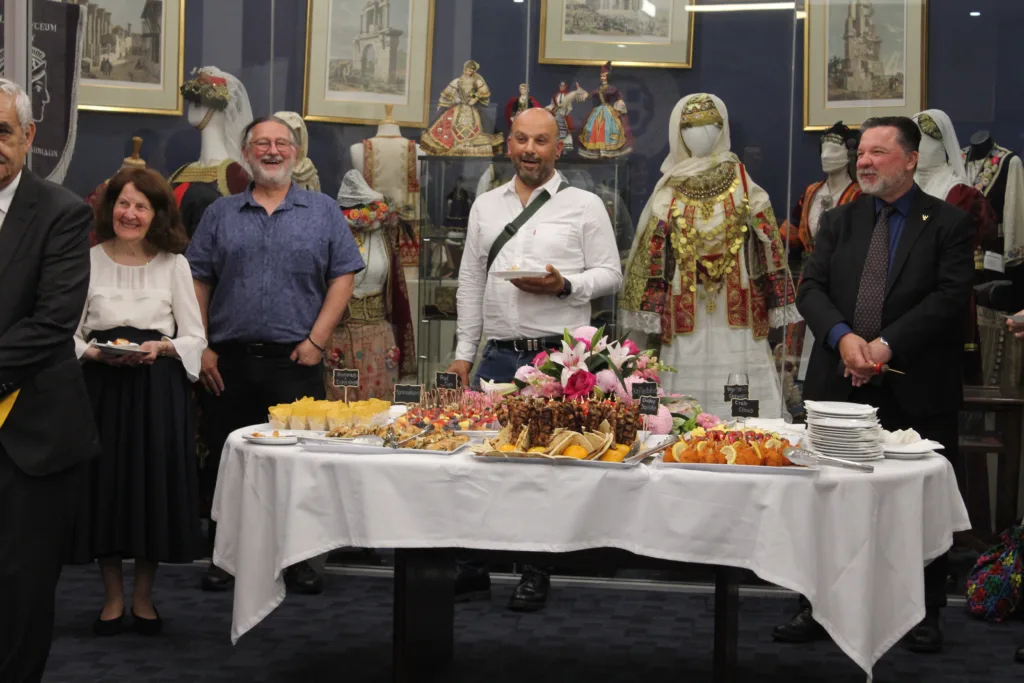
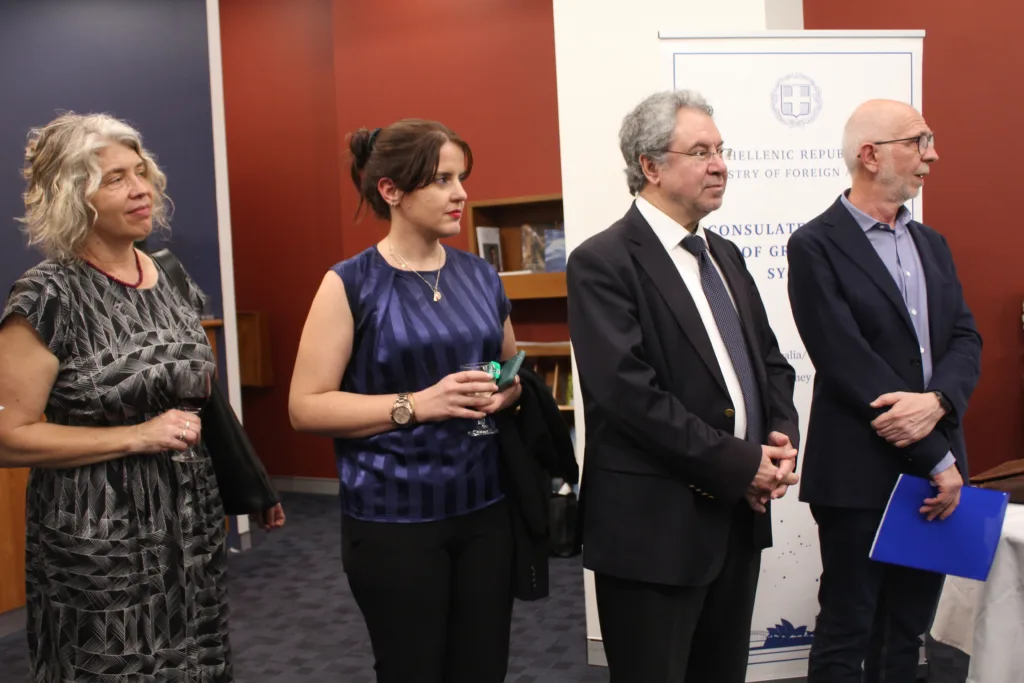
Assoc Prof. Dracopoulos also proposed a new vision for Modern Greek education, which includes a leaner and more flexible curriculum, interdisciplinary partnerships, and engagement with university governance.
Addressing New South Wales’ language policy, which he described as “ineffective,” Assoc Prof. Dracopoulos called for systemic changes and policies that encourage students to take up Greek in a meaningful way.
Despite these challenges, Assoc Prof. Dracopoulos ended on a positive note, praising the vibrant research community and the passion of attendees.
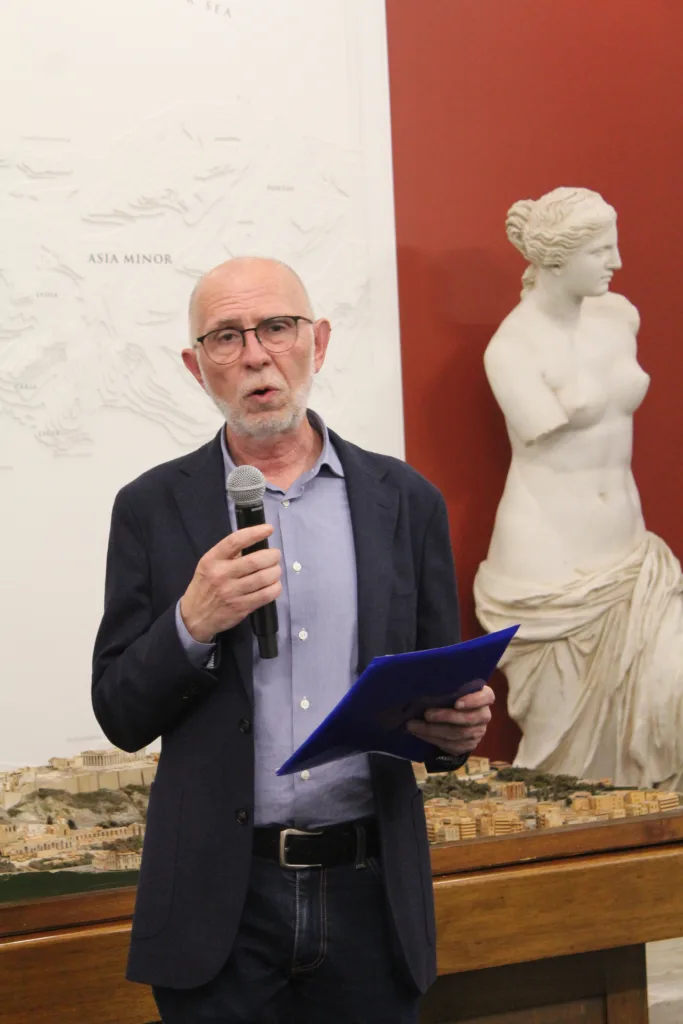
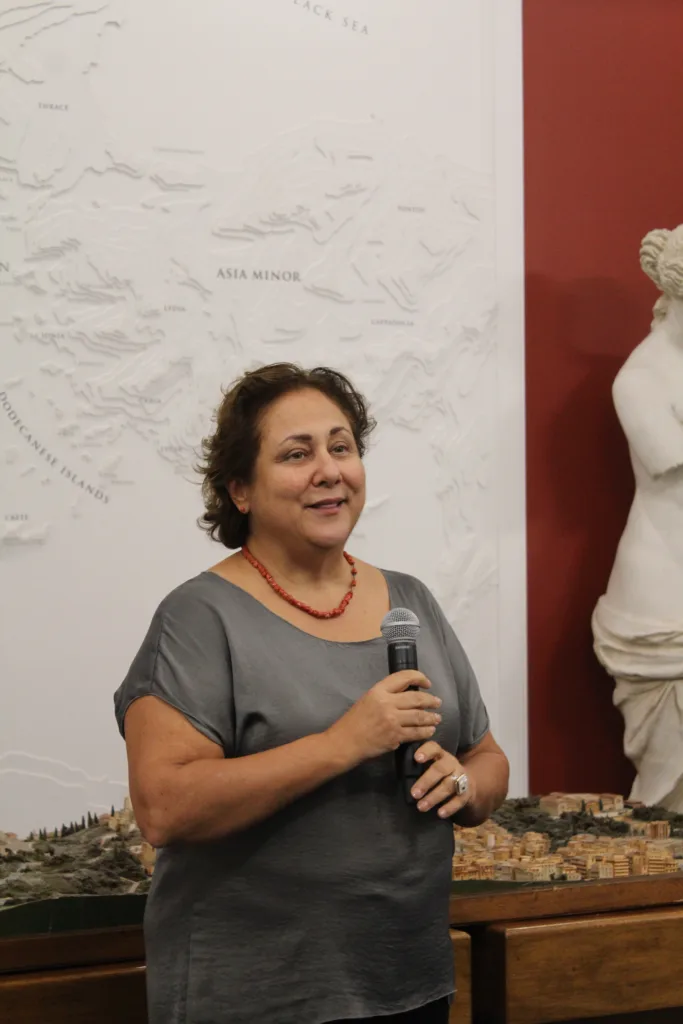
Cultural reflections and generational legacy
Professor of Modern Greek Studies at the University of Patras, Katerina Kostiou delivered a heartfelt speech in Greek, underscoring the cultural significance of preserving the Greek language. She reflected on the role of Greek studies in connecting the diaspora to its heritage and fostering a deeper understanding of Greece’s rich history and traditions.
USYD alumnus and benefactor of the Department, Peter Pontikis shared personal insights into his lifelong connection to Greek language and culture. Reflecting on the teachings passed down by his family, he called on the community to continue supporting Greek studies, viewing it as a vital link between the past and the future.
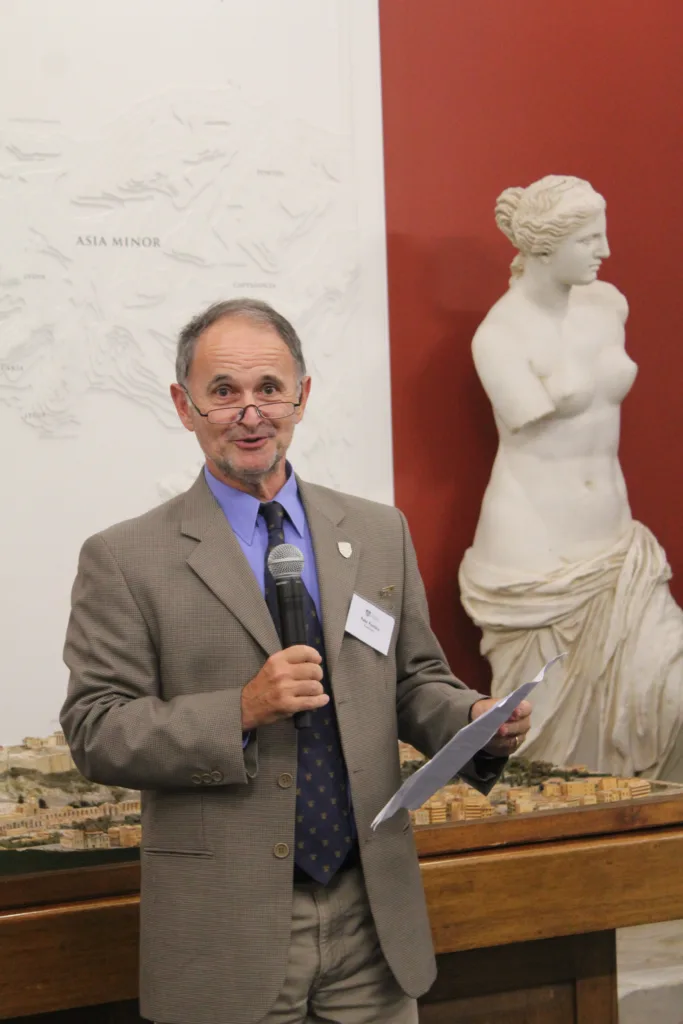
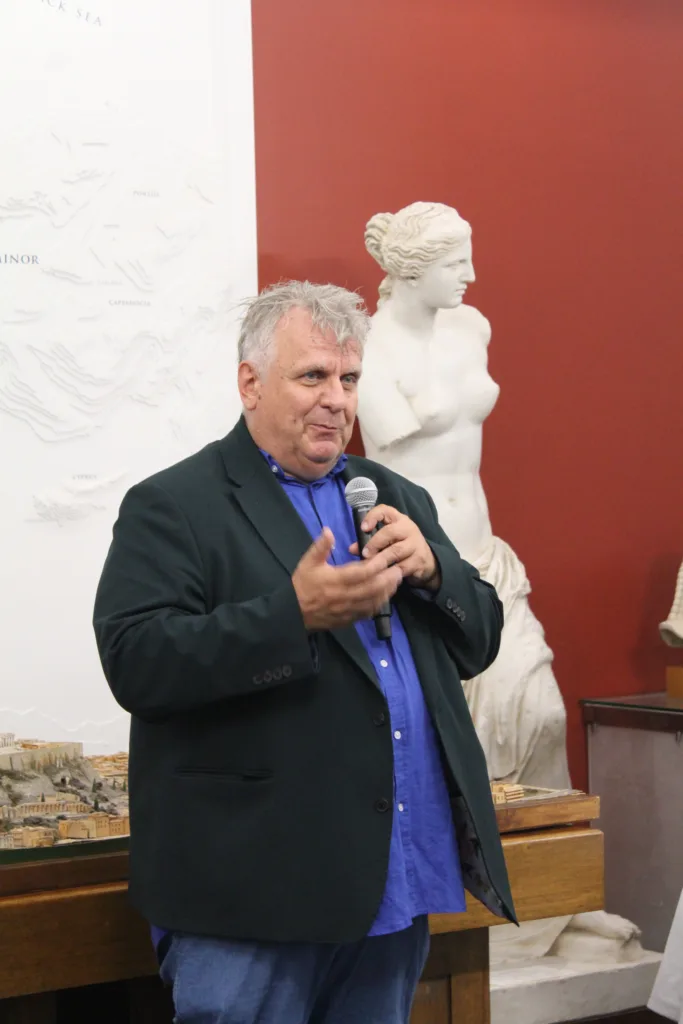
A hopeful conclusion
Professor Karalis, co-organiser of the conference and a Fellow of the Australian Academy of the Humanities, delivered closing remarks that emphasised the collaborative spirit of the event. He praised the dedication of the organisers, attendees, and community supporters, saying, “The Greek Department should be a centre of cultural osmosis.”
Prof. Karalis commended the ongoing efforts to secure Modern Greek’s place in academia and expressed optimism about the younger generation’s engagement with Greek culture.
The evening concluded with canapés and lively discussions, as attendees celebrated the enduring relevance of Modern Greek studies and exchanged ideas for its future.
The conference, which continues over the weekend, promises to deepen discussions on Greek language, culture, and diaspora studies, ensuring that the spirit of Greek heritage thrives for generations to come.
Find the FULL PROGRAM for the 15th Biennial Modern Greek Studies Conference here.
*All photos copyright The Greek Herald / Andriana Simos.
